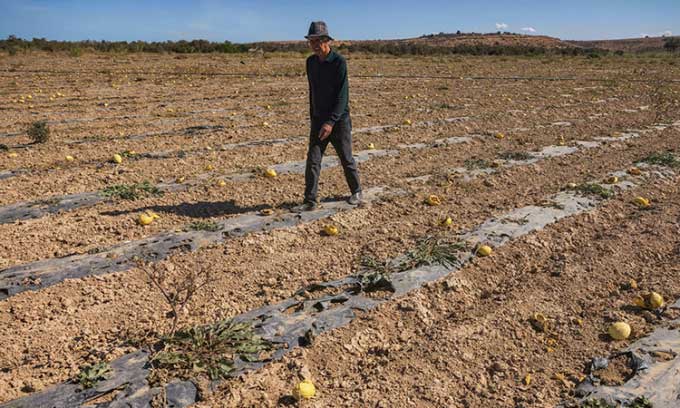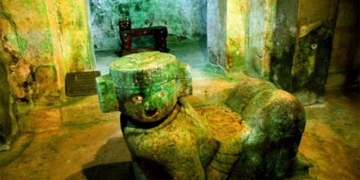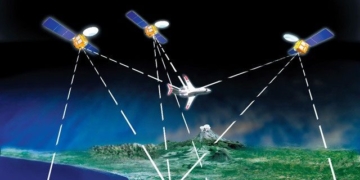Climate change is weakening the flow of one of North Africa’s longest rivers, affecting the lives of farmers.
The drought has caused the Moulouya River to stop flowing into the sea and become saline. (Video: AFP).
Stretching over 500 km, the Moulouya River is a vital water source for farmers in Morocco. It originates from the Ayashi Mountains in the central region and flows into the Mediterranean Sea in the northeastern part of the country. However, the waterway is currently blocked by a sand dune.
“This is the first time in the history of the Moulouya River that it has stopped flowing into the sea. Its flow has weakened after years of drought and over-extraction of water,” emphasized Moroccan environmentalist Mohamed Benata.
As the freshwater from the river diminishes, salty seawater from the Mediterranean infiltrates the groundwater around the riverbed, devastating farmland located more than 15 km inland.
Outside the village of Karbacha, farmer Ahmed Hedaoui cultivates several melon fields, but this fall’s harvest has produced pale and misshapen fruit.
“Even wild boars don’t want to eat them,” the 46-year-old man shared. “I invested nearly 300,000 dirhams (about $34,000) to improve the land and installed two pumps to irrigate the melons, but I have nothing to show for it. Everything has died due to almost no rain and the river being saline.”

Moroccan farmer walking on a withered melon field. (Photo: AFP)
Seawater can contain 35 grams of salt per liter, while freshwater typically does not exceed 0.5 grams. However, many saline sections of the Moulouya River now contain up to 7 grams of salt per liter.
The Ministry of Agriculture predicts that drought will worsen across Morocco in the coming decades, with rainfall expected to decrease by 11% and average temperatures to rise by 1.3°C by 2050. This could reduce irrigation water reserves by a quarter, according to a study.
For many farmers in the Moulouya basin, the crisis is already at their doorstep. Abderrahim Zekhnini, 61, has had to abandon his family’s 200-hectare farm. “What breaks my heart the most is seeing my children working far away on other farms instead of on our own land,” Zekhnini shared.


















































